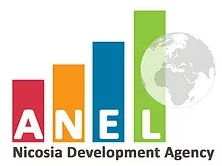Funded by: European Regional Development Fund
Funding Programme: EuropeAid
Programming Period: 2014 -2020
Project Title: Walk the Global Walk
Partnership:
1. Municipality of Fushë-Arrëz (Albania)
2. City of Mostar (Bosnia and Herzegovina)
3. SENSUS (Bosnia and Herzegovina)
4. Municipality of Sofia (Bulgaria)
5. Region of Istria – Dpt. for International Cooperation and European Affairs (Croatia)
6. Municipality of Strovolos (Cyprus)
7. CARDET (Cyprus)
8. Normandy Regional Council (France)
9. International Institute for Human Rights and Peace (France)
10. Municipality of Fyli (Greece)
11. ActionAid (Greece)
12. Regione Toscana (Italy)
13. Oxfam Italia Intercultura (Italy)
14. Municipality of Vila Franca de Xira (Portugal)
15. AIDGLOBAL (Portugal)
16. Municipality of Bucharest (Romania)
17. Assistance and Programs for Sustainable Development – Agenda 21 (Romania)
18. Glasgow City Council (Scotland)
19. University of Glasgow (Scotland)
20. Carmarthenshire County Council, Department of Education (Wales)
21. Dolen Cymru (Wales)
Walk the Global Walk, through Global Citizenship Education (GCE), mobilizes young people as catalysts for transformational change, localizes the Sustainable Development Goals (SDGs) and produces an innovative educational model addressing complexities of the current global agenda. The transferrable and pioneering model, capable of integrating a new understanding of global issues related to migration, climate change and gender equality, will be adapted to the formal education curricula of secondary schools.
Promoted by Tuscany Region and Oxfam Italia Intercultura, and co-funded by the European Union, the Walk the Global Walk project, connects local authorities, and regional and local communities (school communities and civil society organisations) from 11 European countries: Italy, France, Croatia, Cyprus, UK (Wales and Scotland), Portugal, Greece, Romania, Bulgaria, Bosnia and Herzegovina, and Albania. Sustainable Cities and Communities (SDG11), Climate Action (SDG 13), Peace, Justice and Strong Institutions (SDG 16) are the three SDGs to be addressed over the course of this project as they were considered burning issues relevant to young people but ones with which they were not well-acquainted.
Project aim
Walk the Global Walk strives to enhance European partnerships between local authorities and communities by creating a common educational framework within the formal education system that can support and promote awareness of the Sustainable Development Goals.
Objectives
To open up the space where young people can engage in issues related to global citizenship and sustainable development. To promote a culture of peace, respect for human rights and co-responsibility on a global scale.
For more information: www.walktheglobalwalk.eu

